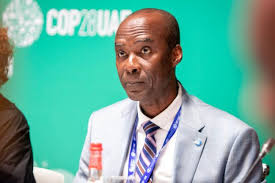Finance Ministry Backs New Fiscal Council to Anchor Discipline and Stability
The Ministry of Finance has underscored the urgent need to establish a credible and independent Fiscal Council to strengthen Ghana’s fiscal discipline and anchor long-term macroeconomic stability.
Speaking on behalf of the Finance Minister, Dr. Cassiel Ato Forson, at a policy roundtable organised by the International Institute for Sustainable Development (IISD) and the IMANI Center for Policy & Education, Chief Director of the Ministry, Patrick Nomo, said the Council will be central to Ghana’s efforts to sustain growth and avoid repeated cycles of fiscal slippages.
“When it comes to the subject of fiscal councils and fiscal rules, we are all aware that it sits at the very centre of our quest to ensure that we develop in a very sustainable way, and that we don’t have the situation where we do well, and then due to various factors, we have to go back and restart again,” Mr Nomo said.
The new Fiscal Council, to be established under the Public Financial Management (Amendment) Act, 2025, will be mandated to monitor and advise on Ghana’s fiscal performance. The Act also sets a fiscal surplus target of at least 1.5% of GDP and a public debt ceiling of 45% of GDP by 2034.
Mr Nomo stressed that past attempts at fiscal councils were undermined by weak data systems, political economy pressures, and poor coordination among state institutions. He urged stronger collaboration between fiscal and monetary institutions and data-holding agencies, adding that without credible and timely data, the Council’s effectiveness would be compromised.
“The fiscal council is made up of very knowledgeable people, but if they don’t get the data they require, they will have challenges in playing their role. It is very easy to set fiscal rules, but if we don’t have a systematic way of collecting data, the fiscal council will struggle,” he remarked.
The roundtable discussions are expected to generate practical recommendations on how to ensure the Council’s independence, credibility, and effectiveness in supporting Ghana’s development priorities.
Ghana’s history of debt distress and macroeconomic instability has highlighted the need for a stronger institutional anchor for fiscal policy. A well-designed Fiscal Council is seen as capable of improving budget and debt management, increasing transparency, and restoring investor confidence.
If implemented effectively, the Fiscal Council could also help ensure that fiscal policy supports essential sectors such as education, health, and infrastructure, while providing a sustainable pathway to growth.








